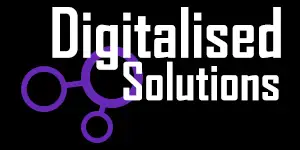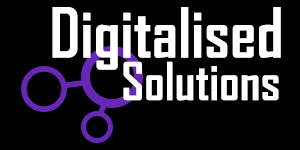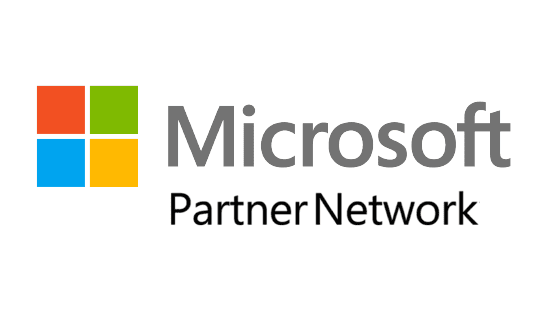At Digitalised Solutions, we emphasise the critical importance of maintaining a secure, compliant, and efficient IT ecosystem. Integrating unsupported operating systems into your business environment poses significant risks that can jeopardise your operations and reputation. Here’s why avoiding outdated systems is crucial:
1. Security Vulnerabilities
Unsupported operating systems represent a major cybersecurity risk. When a system reaches its end-of-life (EOL) or end-of-service (EOS) date, it no longer receives critical updates or security patches from the vendor. This lack of support means that any newly discovered vulnerabilities or threats will not be addressed, leaving your digital infrastructure exposed to significant security risks.
Hackers and cybercriminals are constantly searching for vulnerabilities in outdated software to exploit. Unsupported operating systems are an attractive target because they are often less protected against emerging threats. This can lead to severe consequences, including data breaches, unauthorised access to sensitive information, and significant financial losses. In an era where cybersecurity is paramount, relying on outdated systems can have catastrophic consequences for your business. According to recent studies, the cost of a data breach can run into millions of pounds, factoring in both direct costs and long-term reputational damage. Therefore, maintaining up-to-date systems is essential to protecting your business from these high security risks.
2. Compliance Issues
In today’s regulatory environment, businesses must comply with strict data protection laws like GDPR, HIPAA, and PCI-DSS. Unsupported operating systems pose significant compliance risks because they do not receive necessary updates to protect sensitive data. This can lead to violations of regulations, resulting in hefty fines and legal consequences.
For example, GDPR requires robust security measures to safeguard personal data, which outdated software may fail to meet. Similarly, HIPAA and PCI-DSS demand secure systems to protect health and payment information, standards that unsupported software cannot uphold.
3. Regulatory and Audit Risks
In addition to the direct compliance risks, unsupported operating systems can expose your business to significant regulatory and audit risks. Regulatory audits are a critical part of ensuring that businesses comply with industry standards and legal requirements. During these audits, the use of unsupported systems can be identified as a serious vulnerability.
This can lead to additional scrutiny from regulatory bodies, potentially resulting in fines, penalties, and mandated corrective actions. Beyond the financial impact, the discovery of non-compliance during an audit can severely damage your business’s reputation, eroding trust with clients, partners, and stakeholders.
For comprehensive guidance on maintaining compliance and managing these risks, refer to ISO standards on information security and risk management. These standards provide a robust framework for establishing and maintaining security measures that protect against threats and ensure regulatory compliance.
3. Operational Stability and Performance
The stability and performance of your IT infrastructure rely heavily on the operating systems that support your critical applications. Unsupported systems are more prone to performance issues, which can disrupt your business and lead to operational risk and downtime. This can be particularly problematic for CRM systems, financial systems, and other critical applications that your business depends on daily.
As technology advances, newer software and hardware may not be compatible with outdated operating systems, creating significant integration risks. For example, modern software updates may require advanced features that are unavailable in unsupported systems. This can lead to compatibility issues and potential operational disruptions. Which can result in inefficiencies and additional costs, as you may need to invest in workarounds to maintain smooth operations.
Supported operating systems, on the other hand, benefit from ongoing improvements and optimisations that enhance stability and performance. By staying current with supported systems, you ensure that your IT environment remains stable, efficient, and capable of integrating easily with new technologies. This not only reduces downtime but also helps in managing operational risk effectively and maintaining productivity.
4. Support Challenges
Without official vendor support, troubleshooting and resolving technical issues with unsupported systems can become a significant challenge. When problems arise, your internal IT team may struggle to find solutions due to the lack of available resources and guidance. This can divert valuable time and resources away from more strategic initiatives, impacting overall productivity.
Additionally, if you require specialised support services for unsupported systems, you may face higher costs. Third-party support providers that offer services for outdated software often charge a premium for their expertise. These additional costs could be avoided by using supported software, which benefits from regular vendor support and updates. By investing in supported systems, you reduce the risk of high support costs and ensure access to timely assistance and resources.
5. Cost Implications
Maintaining unsupported systems can lead to substantial financial implications for your business, creating significant cost risks. The costs associated with frequent issues, specialised support, and potential security breaches can quickly accumulate. For instance, the financial impact of a security breach includes not only immediate recovery costs but also long-term expenses related to data loss, operational downtime, and reputational damage.
Investing in up-to-date systems helps safeguard your bottom line by minimising these financial risks. Supported systems benefit from regular updates and patches that address vulnerabilities and improve functionality, leading to lower maintenance costs and fewer disruptions. By prioritising investment in current technology, you ensure that your IT environment remains efficient, cost-effective, and resilient against emerging threats.
6. Reputation Risk
In the digital age, maintaining client trust is crucial for business success. Clients and partners expect that their data will be protected and handled securely. Using outdated and unsupported technology can undermine their confidence in your ability to safeguard their information which can lead to significant reputation risk. This can result in reputational damage, loss of business, and a diminished market position.
Rebuilding trust after a data breach or technology failure can be challenging and time-consuming. To protect your business’s reputation, it is essential to demonstrate a commitment to maintaining a secure and up-to-date IT environment. Clients and partners are more likely to trust businesses that invest in modern, supported technology and prioritise cybersecurity.
Conclusion
At Digitalised Solutions, we recognise the importance of a secure and compliant IT environment. Ensuring that your operating systems are supported and current is essential. This will protect your business operations, maintain compliance, and safeguard client trust. Explore how Digitalised Solutions can help you optimise and secure your digital infrastructure today.
Prioritise IT security and operational efficiency. Don’t let unsupported operating systems become a liability. Investing in supported technology is not just a matter of compliance, it’s a strategic decision that impacts the long-term stability of your business. Get in touch with Digitalised Solutions to fine out how.








